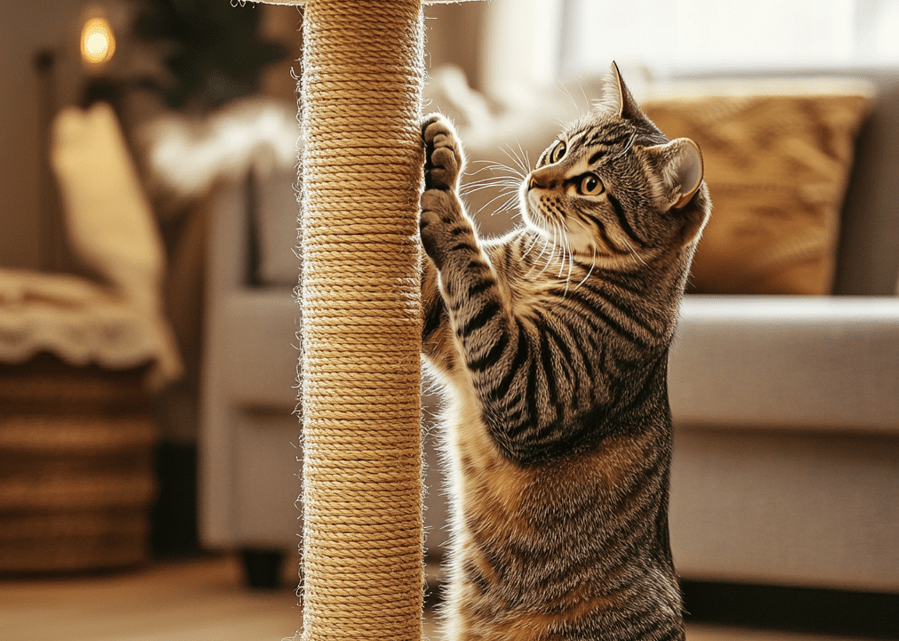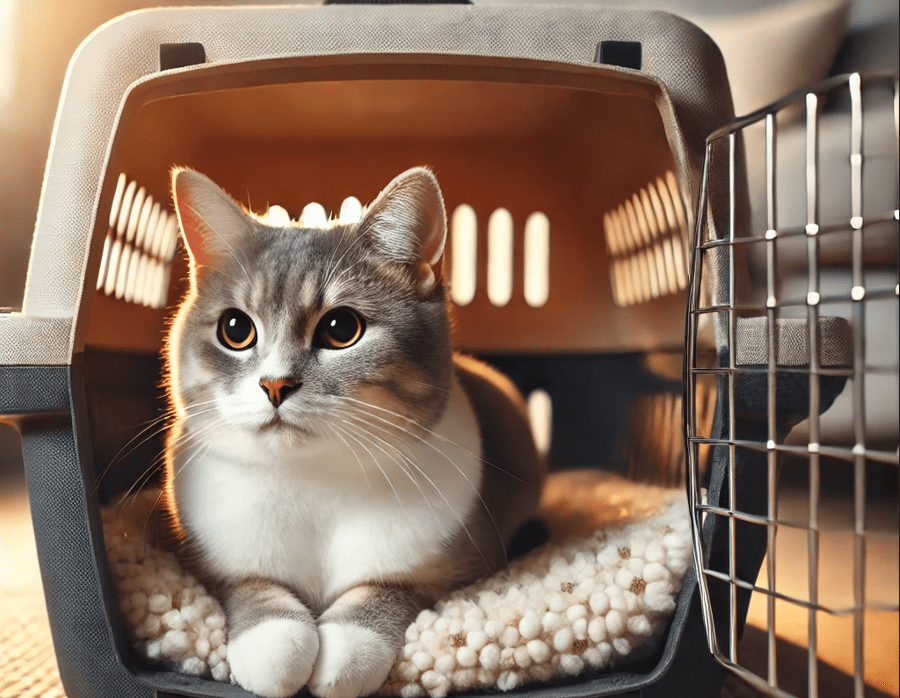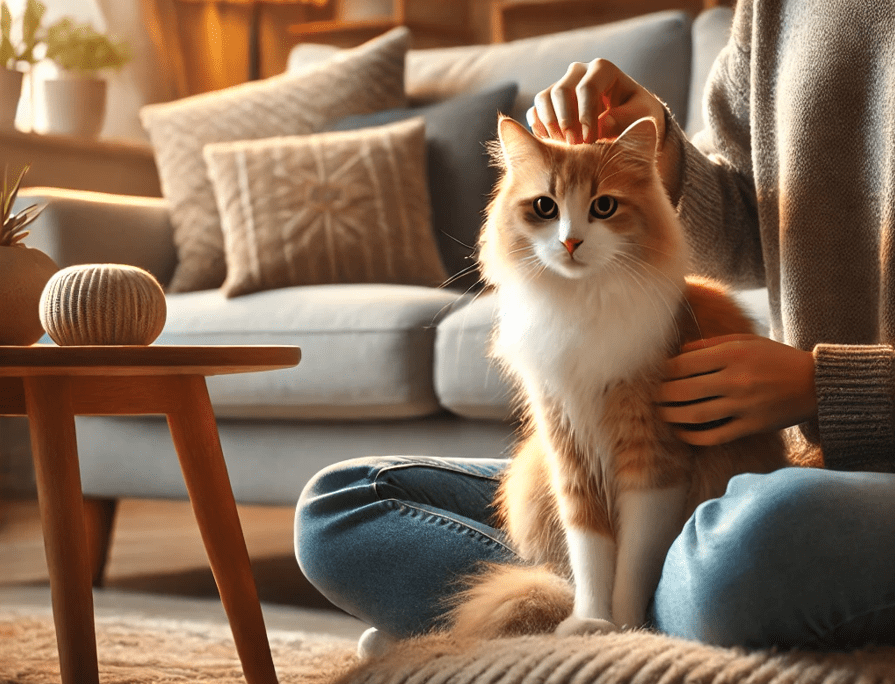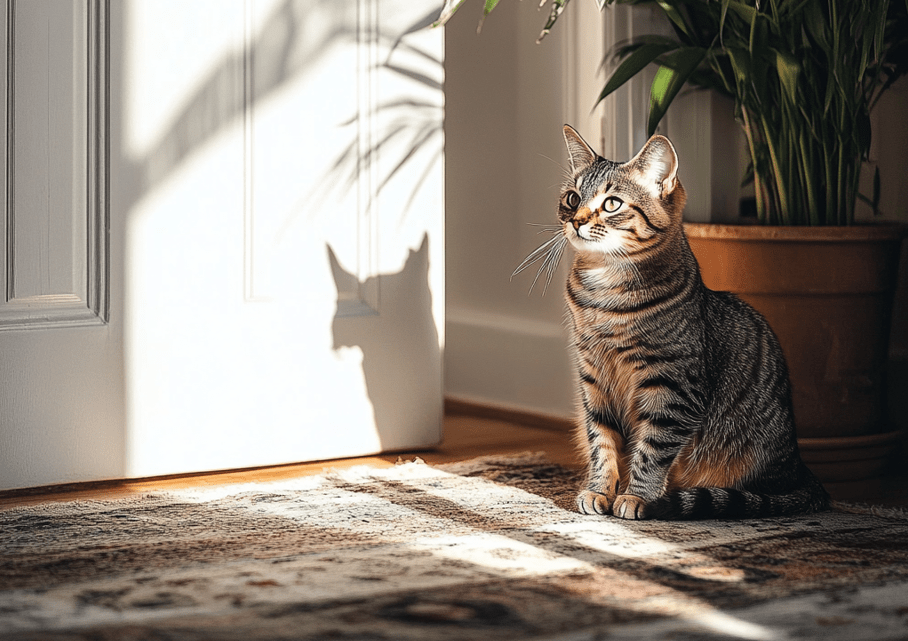
Are you having trouble with your feline friend scratching at your doors? Learn about the best cat scratching door solutions to keep your home safe and your cat happy. Cats have a number of instinctual behaviors that we love to see. But one of the instinctive behaviors that can drive cat owners to tears is scratching at the door. This habit can become quite annoying at times especially at night and can even lead to potential harm to your doors. It’s important to remember that cats don’t act out on purpose to bother their owners, there’s likely a reason for its behavior. In this article, we will cover all potential reasons behind scratching and offer actionable solutions to curb door scratching. Cat owners should determine what causes their cat to exhibit this particular behavior and amend it accordingly to find a solution that works for them.
Why Does My Cat Scratches the Door?
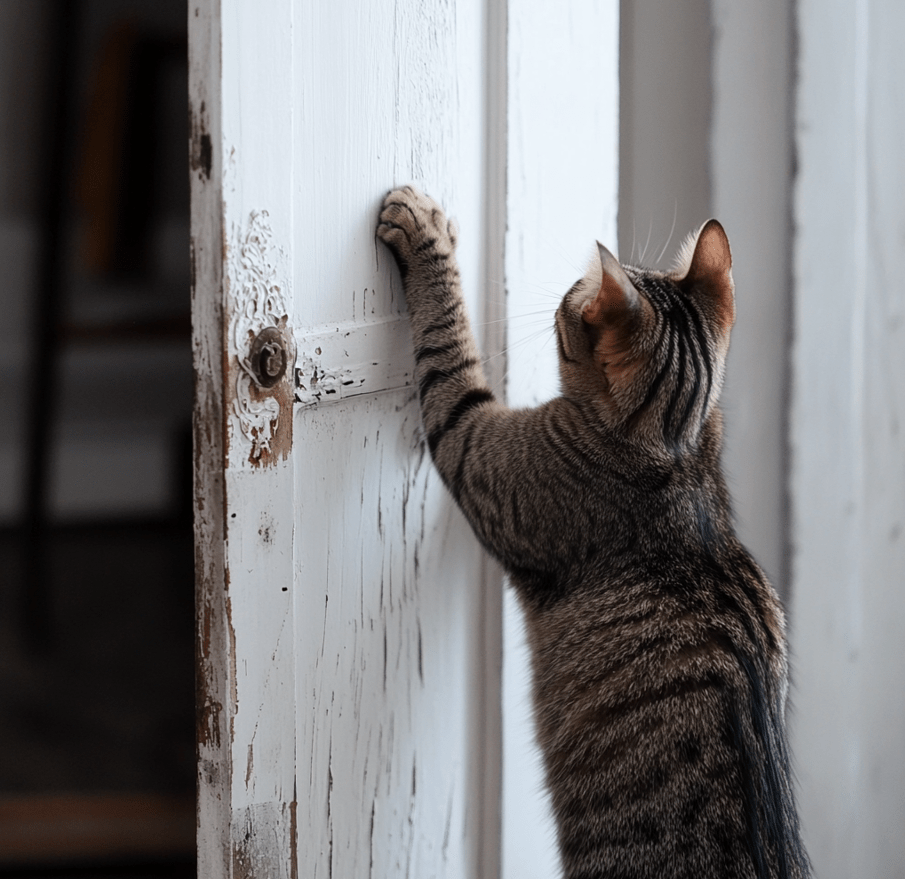
So, why do cats scratch doors? Here are a few possibilities: Your cat might be looking for you for food, playtime, or affection. Or they could be flexing their muscles, defending their turf, managing boredom, dealing with stress or just keeping their claws sharp. Because scratching is a natural feline behavior, the reason why cats scratch may be different each time, and it can be difficult for pet owners to know the cause. However, if you seek how to stop your cat from scratching the door in our article you will find some useful tips for stopping a cat from scratching the door.
How to Stop Your Cat from Scratching the Door
Find out What is Causing the Scratching
While your cat’s scratching of the door is an unwanted behavior, it is important to also identify reasons behind it. So if your cat scratches the door at night, it may be in search of attention, food, or companionship. But if the scratching seems to take place when you’re not around, you might consider using a pet camera to monitor your pet’s behavior and interpret their body language or vocalizations.
Provide Appropriate Scratching Options
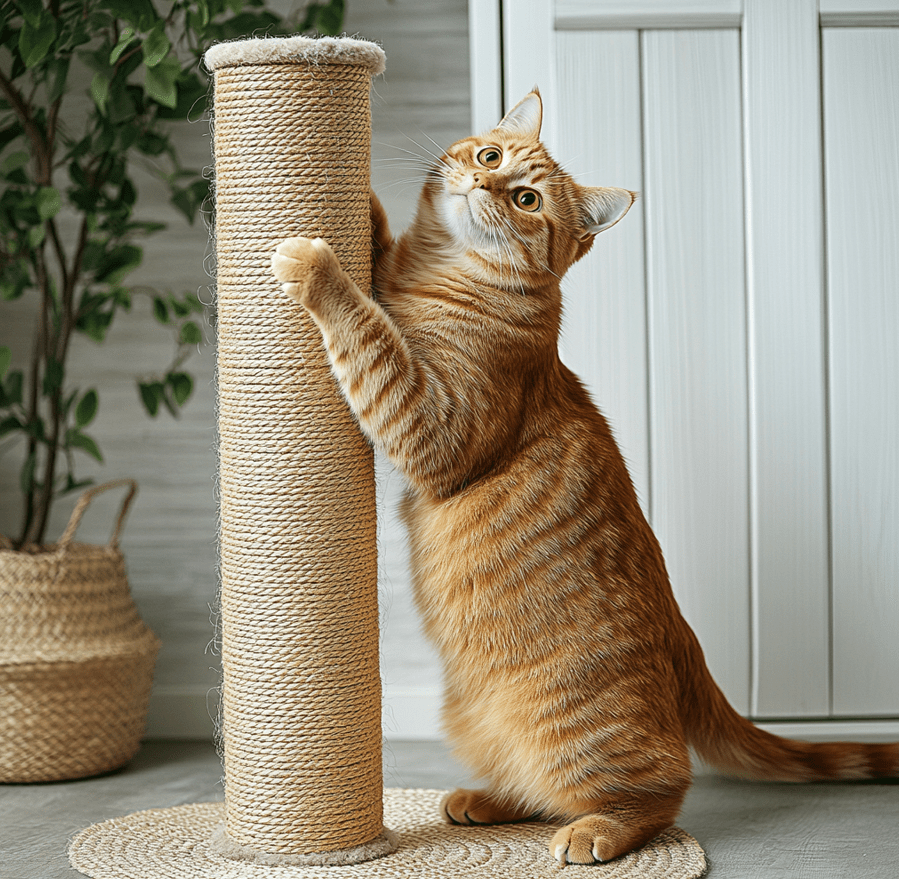
Providing appropriate scratching surfaces is one of the best ways to discourage your cat from scratching your doors. Try different options, such as vertical scratching posts or horizontal pads, and experiment with different materials, including fabric, rope or cardboard, to see what your cat likes. Put these alternatives by the door they tend to scratch at in an attempt to redirect their behavior. Also, give them a treat when they use the scratching post or pad to reinforce that behavior. When you catch them scratching the door, distract them gently and take them to the appropriate scratching area.
Keep Your Cat’s Nails Trimmed
Cats’ claws never stop growing, and they naturally shed the outmost layer to keep their claws sharp. Scratching is a natural behavior that allows them to maintain their claws in prime condition for catching prey and forested scaling. If your cat is scratching the door, it may be trying to cut off the outer sheath of the nails. The more often you trim your cat’s nails, the less damage they will cause when in contact with your doors. If you don’t know how to trim their claws safely, ask your vet for help.
Promote Daily Physical Movement
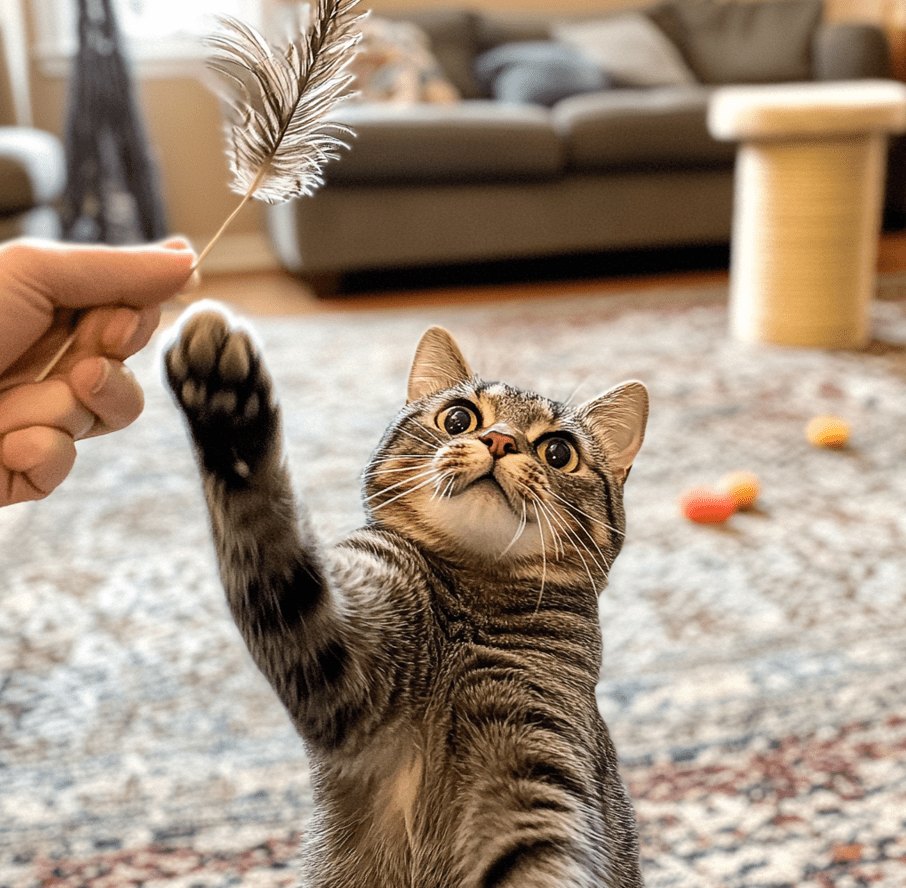
If your cat is scratching on the top of your door at night after you’ve closed your bedroom, it may be due to excess energy. You should play with your cat before bed, this will help burn their energy and help them lie down and sleep peacefully so that you can do the same.
Offer Innovative Toys and Furniture
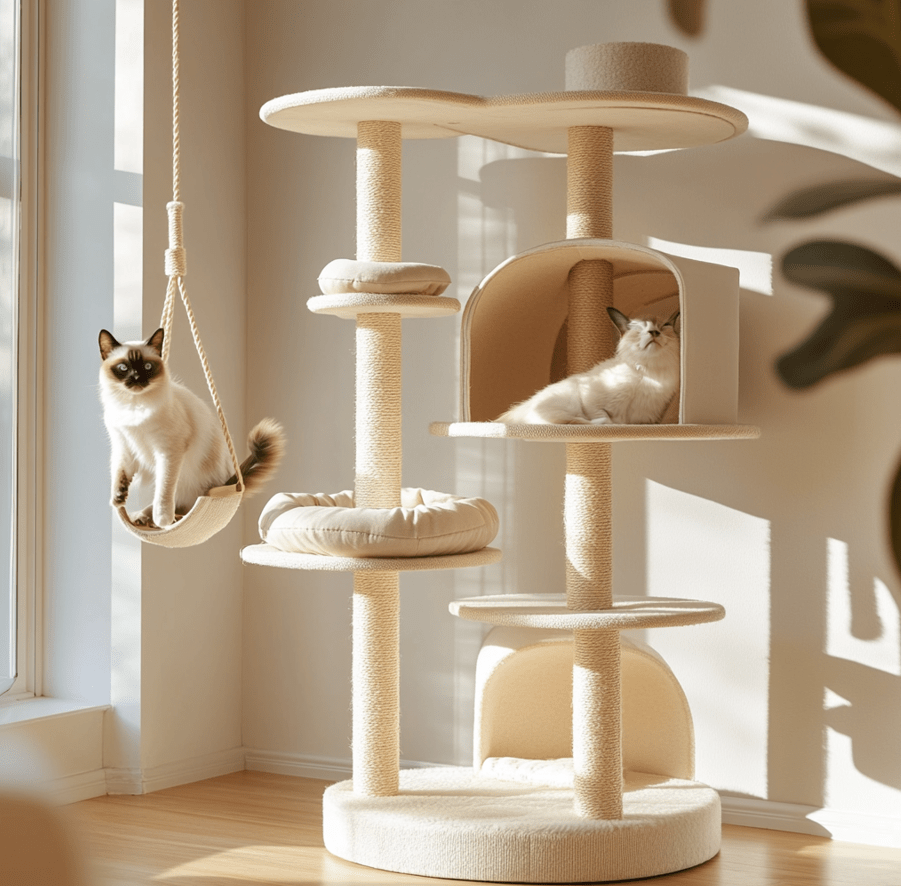
Door-scratching behavior can stem from boredom. Provide mentally stimulating toys, such as laser pointers or puzzle feeders, to keep your cat engaged. Cat trees or perches can also entertain your kittens for hours and minimize the chances of scratching at nighttime.
Change Your Cat’s Feeding Schedule
If your cat scratches the door for food, rethink their feeding period. Give them a meal closer to bed so they can feel full and be more likely to sleep longer!
Install a Cat Flap to Access the Outdoors
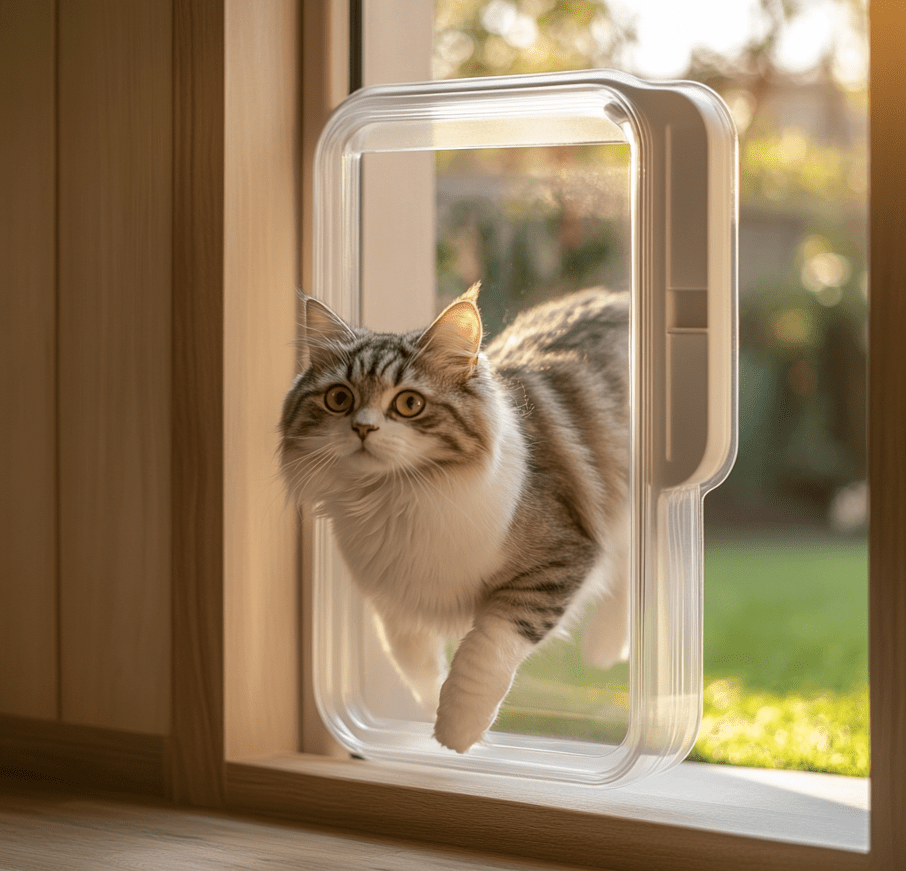
If your cat goes outside, they may scratch at the door to indicate that they want to go out. A cat flap can allow them to go out when they want, which may help prevent them from scratching at night.
Adding Physical Barriers to Your Door
You can also use protective covering like plastic sheets or baby gates in front of the door to stop damage. Or try deterrents such as cat-repellent sprays and tin foil to deter them from scratching.
Visit a Veterinarian for Health Issues
Sudden behavioral changes like door-scratching can sometimes be signs of underlying health problems. Watch your cat for any other unusual symptoms or changes in behavior and take her to a vet to rule out any medical explanation.
Get Advice from a Cat Behavior Expert
If after ruling out health issues and trying other solutions your cat is still scratching doors, consult with a cat behaviorist. They can help you identify stressors or anxiety triggers, and advise you on how to create a calmer and safer home for your cat.
How to Train Your Cat Not to Scratch the Door
Disable the Scratching Behavior
Do not give your cat attention when he scratches on the door, as this reinforces the behavior. Unless your cat is in distress or pain, do not open the door, call them, play with them or feed them. In time, your cat will understand that scratching the door doesn’t lead to the desired result, which should put a stop to this behavior, especially when you’re trying to sleep at night.
Use Positive Reinforcement and Clicker Training
When they stop scratching the door or use a proper scratching surface, reward your cat. Use praise, treats or a clicker to associate the desired behavior with a positive response. This helps reinforce your cat to repeat good habits.
Make Negative Connections with the Door
To discourage cats, try natural repellents made from essential oils such as cinnamon or rosemary, which cats generally find unpleasant. You can also apply double-sided tape or tin foil to the door, since cats tend to avoid these types of textures on their paws. Those deterrents may deter scratching the door.
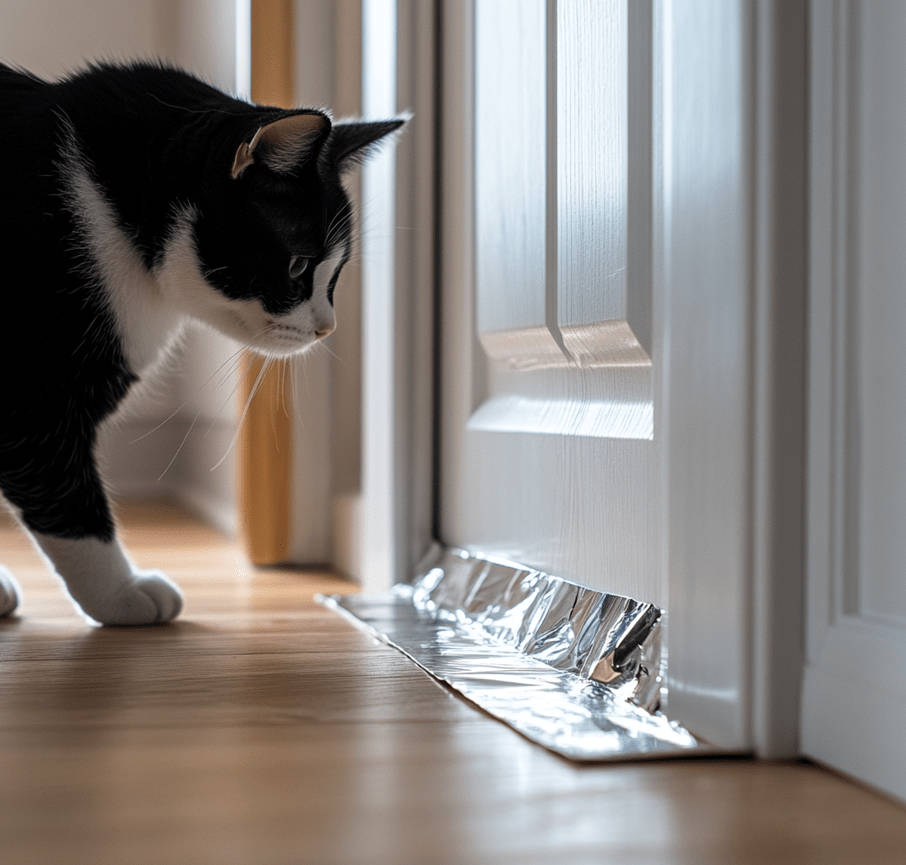
Redirect Your Cat’s Behavior
If your cat begins rifling at the door, kindly take them to a nearby scratching post or pad. Give them praise or treat when they go on the correct surface. This is to educate your cat where scratching is allowed.
Additional Environmental Enrichments to Minimize Door Scratching
Cats tend to scratch doors when bored so keeping your fur baby mentally and physically stimulated is a good way to alleviate the behavior. Establish playtime, ideally before bed, to snuggle and help your cat unwind and tire for sleep. Playing interactive sessions can also release unwanted energy.
Provide toys such as Ping-Pong balls or puzzle feeders to stimulate your cat. Also, include cat furniture, such as scratching posts, cat trees, wall-mounted perches or hammocks. Cats have a love of watching their domain from above. A warm, comfortable spot by a window, where they can see birds and squirrels or just cars passing, can keep them entertained and mentally stimulated for hours.
Providing a cat-friendly environment and meeting their needs can discourage scratching at doors, helping to keep them happy and entertained.

